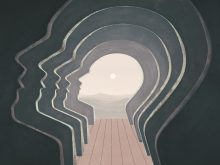Leanne Lawrence began to notice subtle changes in her mother.
Marjory Topping had lived alone for about four years after the death of her husband. She remained active and continued to drive the grain truck during harvest.
In 2004, she bought a house in Kipling, Sask., to be closer to family and friends. However, she maintained a quiet life with little social interaction.
Around 2008, Lawrence said her mother’s forgetfulness became more noticeable. Topping started using a notepad to write down questions or upcoming events, which Lawrence would help with during visits.
Read Also

Powerful solar storm lights up night time sky
Prairie skywatchers have been on high alert the last few nights as spectacular aurora displays have made the night time…
“Mom was a very good cook and she cooked all the time. And then one day, she asked me, ‘how do I make chili?’ And she had made chili thousands of times as we were growing up.
“So I just told her what I did and wrote it down so that she would know for next time,” said Lawrence.
She also noticed her mother wasn’t baking as much, which she once loved to do.
“There were lots of those kinds of things that she stopped doing because she couldn’t recollect ever doing it before.
“On the other hand, she made bread every week of her entire life and continued doing that right up until she went into the care home. She never, ever forgot how to do that.”
Card games, a favourite pastime, also became frustrating as Topping became increasingly forgetful.
She was later diagnosed with a form of dementia, which can cause changes in abilities, behaviour and communication.
These changes, the ABCs of dementia, represent the warning signs of someone developing the condition and include memory loss.
“A lot of people think dementia is just memory loss, but there are nine other warning signs that could be related to dementia,” said Erica Zarazun, public awareness co-ordinator with the Alzheimer’s Society of Saskatchewan.
It is an umbrella term, not a specific disease.
“Dementia refers to the symptoms that are caused by something like Alzheimer’s disease. So dementia isn’t actually a disease, it’s the product of a disease. All of those symptoms are what makes up what dementia is,” said Zarazun.
“Dementia is diagnosed when these symptoms, the ABCs, are severe enough to interfere with a person’s daily life. But they won’t all be experienced at the same time, as it does kind of look different for everyone depending on what disease they have and what areas of their brain are affected.”
A: Abilities
Changes may involve the loss of ability to do basic tasks or a sudden struggle to complete a routine action.
Warning signs include memory loss that affects daily life, difficulty doing familiar tasks, disorientation in time and space and misplacing things.
“What you can see people do is repeating the same information over and over, asking the same questions, forgetting what an object is, how to use it,” said Zarazun.
She said it could also involve forgetting routine things like how to get home, not knowing what time it is or how long they’ve been doing something, misplacing things, inability to retrace their steps and just being more forgetful.
Zarazun said it opens up farm safety issues, “so, forgetting how to get around your farm or forgetting to lock a gate that you would normally lock. Things like the order to do things, so you might do things differently or miss things.”
Topping was always an active driver but her licence was suspended because she could not remember how to get home.
“The same was driving out to my place,” said Lawrence. “She drove here thousands of times, but then all of a sudden, she wasn’t sure where to turn. So from then on, I said, ‘no, I’ll come and get you. You don’t have to drive out here’.”
B: Behaviour
A person’s preferences and interests may shift over time, but their main personality traits generally don’t. Dementia that causes behavioural changes can affect relationships, increase the risk of social isolation or lead to dangerous situations.
The warning signs are impaired judgment, changes in mood and behaviour, changes in personality and loss of initiative.
“You’ll start to see people act uncharacteristic, or maybe lose interest in the things they normally like to do. They might not want to be as social or not have an interest in what they have to do every day or a hobby that they once had,” said Zarazun.
“They might start to behave out of character or erratic, such as withdraw or have more mood swings. People might also lash out, so they start being angry for no reason or depressed for no reason, which wasn’t how they would usually act before,” she said.
“Sometimes we see people withdrawing large sums of money. This is how some scams tend to happen to people.”
Lawrence said her mother remained a quiet, mild-mannered woman, never grumpy or losing her temper.
However, as the disease progressed, she lost initiative for many activities she loved.
“Mom did things that she was comfortable doing and could remember to do. So, she tended to do a lot more crocheting and knitting. Whereas before, she used to be a very active lady. She loved her flower beds, her little garden, and cutting her grass.
“There were times where she didn’t know if it was a flower or a weed, should she pull it or not? So she would wait and write it down, and then I would come and show her and we would do it together, that kind of thing.
“As the disease progressed, she ended up crocheting all day long. She kind of forgot about doing a lot of the other stuff. She didn’t vacuum because she never thought of it, I guess.
“Not that she lived in a pigsty. She didn’t. But she knew she could crochet and she had a plan to make Afghan (blankets) for all of her grandchildren. So that’s what she focused on and that’s what she ended up doing most of the day,” said Lawrence.
C: Communication
Changes in communication could affect conversation and someone’s ability to understand the words and environment around them.
These changes are often apparent when vocabulary decreases, common words become difficult to understand, or sentences suddenly seem hard to follow. Interpreting signage, symbols and sentences can also become difficult.
The warning signs are problems with language and abstract thinking.
“You’ll start to see people have problems with language, so they might lose the types of words that they would normally use. They might have trouble recognizing words or just making up new words for things.
“They might also start having issues understanding words. A lot of the time we’ve seen people revert back to a first language, so kind of that long-term memory sticks around a little bit more,” said Zarazun.
People with dementia may have difficulty understanding money when shopping, particularly the coins that equal a certain total. They may also struggle with interpreting symbols such as road signs and traffic lights.
Lawrence said her mother never created new words, but sometimes had trouble remembering which words to use in a sentence.
“If we were discussing a recipe, she sometimes wouldn’t be able to name the things that go into the recipe that she was wondering about. Like walnuts for instance, those hard things that get chopped up,” she said.
Abstract thinking was never an issue but the ability to converse slowly disappeared.
Lawrence believes her mother’s diminished communication skills resulted from living alone and not engaging in conversation. However, when she had company, she rarely initiated a conversation.
“She didn’t have a lot of things that she had to plan and organize in her own mind for that day.”
Lawrence thinks social isolation sped up the ABCs of her mother’s dementia.
“If you live by yourself, it hastens dementia because you’re not using your mind as much. You still have to think about what you’re going to say when you’re communicating with people.
“It’s important to keep your brain active doing as many different things as you can. And if you don’t use it, then you tend to lose it,” she said.
“It’s a very sad disease because it takes that person away from you little by little, until they don’t recognize themselves and they’re not the person that you thought of as your mother. I’m very fortunate that I had her for as long as I did.”
The Alzheimer Society of Saskatchewan estimates more than 20,000 individuals in the province live with dementia. More information is available on the dementia helpline at 877-949-4141 or at alzheimer.ca/sk/.
















